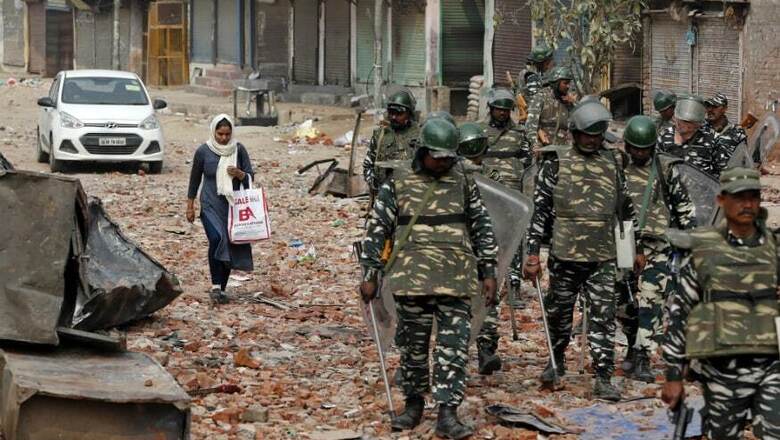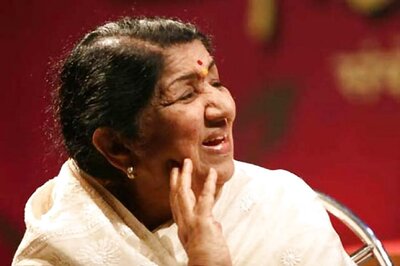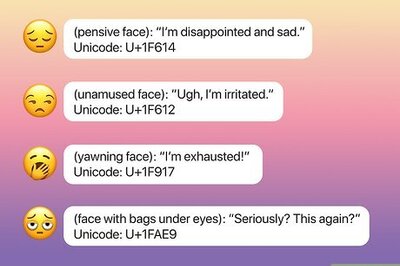
views
New Delhi: Six months after the in the North East Delhi violence which claimed the lives of more than 50 people, a majority of them being Muslims, Amnesty International has accused the Delhi Police of failing to prevent riots in between February and 23 and 29.
The investigation conducted by the human rights organisation alleges that there was a “denial of medical services to victims, failure to rescue them, excessive and arbitrary use of force on protesters and differential treatment of assemblies, no response to multiple calls leaving the survivors to fend for themselves over the period of six days of violence in Delhi.”
After interviewing almost 50 witnesses of the riots — which began after BJP leader Kapil Mishra’s “ultimatum speech” — the Amnesty International has claimed that the response of Delhi Police to hate crimes committed during the violence was “inadequate”.
There was verification of the evidence of human rights violations in the user-generated social media videos during the riots, and for this, Amnesty International India collaborated with Amnesty International’s Crisis Evidence Lab.
Highlighting the case of Mohammed Faizan, a 23-year-old victim who was seen in a viral video where policemen kicked a group of five wounded men and asked them to sing national anthem, Amnesty International said the “ruthless treatment of the heavily injured men by the Delhi police violates the international human rights standards.” After the video was shot, the men were detained by the police.”
Faizan had later succumbed to his injuries.
According to the report, Delhi police’s actions also violate Article 9 of the International Covenant on Civil and Political Rights (ICCPR), to which India is a state party. Delhi police also violated the domestic law, it says, adding that the cops did not follow due procedure as per law.
Amnesty investigation further alleged that Delhi police personnel were complicit and an active participant in the violence that took place in Delhi in February 2020. “Yet in the last six months not a single investigation has been opened into the human rights violations committed by the Delhi police – before, during and after the violence.”
Avinash Kumar, Executive Director of Amnesty International India, said the first step towards ensuring justice for the survivors of the February Delhi riots is to end the impunity that prevents Delhi police from being held accountable.
“Six months on, there has not been even a single investigation into the role of the Delhi police. This ongoing state-sponsored impunity sends the message that the law enforcement officials can commit grave human rights violations and evade accountability. That they are a law unto themselves,” he added.
It also analysed the role played by politicians who made hate speeches in the build-up to the riots and illustrated the example of 23 February, when BJP leader Kapil Mishra, led a rally against the peaceful protests in Jaffrabad in North-East Delhi, and gave “an ultimatum speech.”
Kumar said, “Amnesty International India calls on the Ministry of Home Affairs to conduct a prompt, thorough, transparent, independent and impartial investigation into all allegations of human rights violations committed by Delhi police and the hate speeches made by political leaders.”
“In 1997, the Supreme Court of India in the case of D.K. Basu v. State of West Bengal also laid down a set of guidelines to prevent custodial abuse and torture that have since been incorporated in the Code of Criminal Procedure (CrPC),” the human rights organisation points out.
These guidelines and various sections of the CrPC call for the preparation of an arrest memo with the date and time of arrest signed by the arrested person and an independent witness. It also states that a family member should be informed of the person’s arrest along with their place of detention and that the arrested persons must be medically examined after being taken into custody. It also requires the police to produce every arrested person before a magistrate within 24 hours.
In July there was chairperson of Delhi Minorities Commission (DMC)’s fact-finding report on communal violence in North East Delhi. It had as well slammed the police for allegedly “engaging in direct violence, including physical assault and abuse.”
The report found that Delhi police were “either mute spectators or, in some cases, even alleged participants” in the violence.




















Comments
0 comment